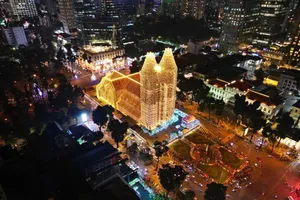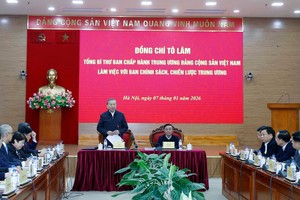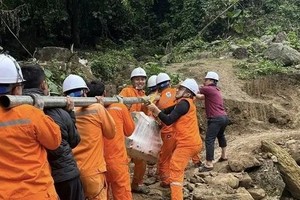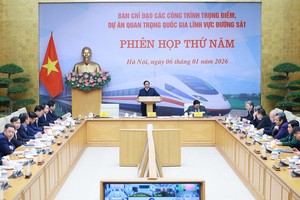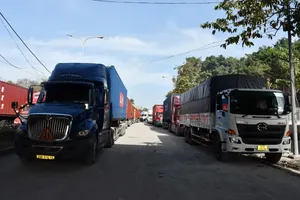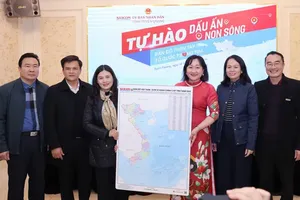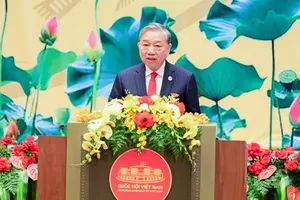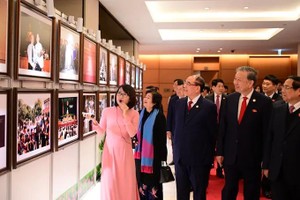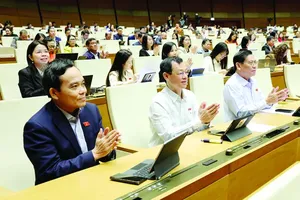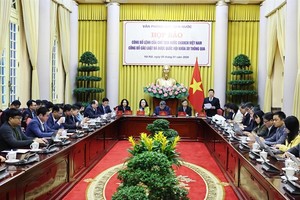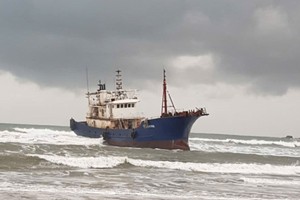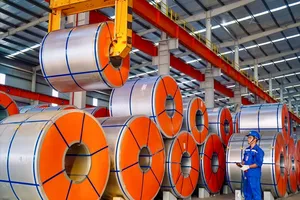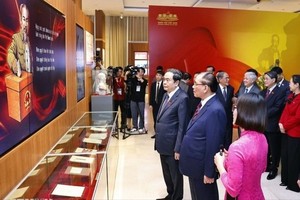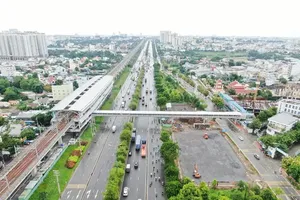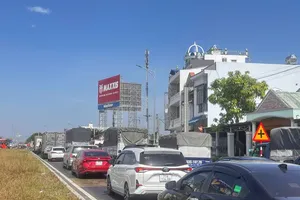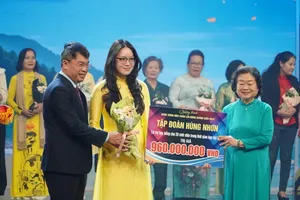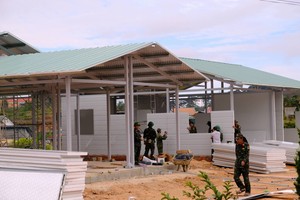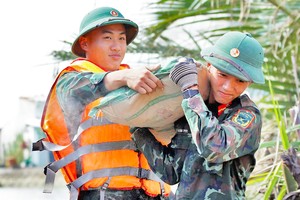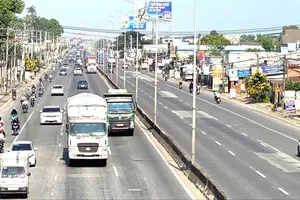Following Resolution No. 45-NQ/TW of the eighth conference of the 13th Party Central Committee on building and promoting the role of intellectuals to meet the requirements of rapid and sustainable national development in the new period recently signed by General Secretary Nguyen Phu Trong, it is essential to promote the role of overseas Vietnamese, strengthen cooperation with Vietnamese intellectuals abroad in science and technology transfer and development, innovation, especially in new fields, contributing to promoting the country’s industrialization and modernization.
Appropriate policies and incentives for each group of overseas Vietnamese
Statistics showed that at the current time, approximately six million overseas Vietnamese are living, working and studying in 130 countries and territories in the world.
Among them, about 600,000 holding university degrees or master's degrees are in developed countries, including scientists and entrepreneurs in fields of medicine, pharmacy, technology information, electronics, telecommunications, machine manufacturing, biotechnology, new materials and energy that Vietnam has high demand and expectations.
The communities of Vietnamese intellectuals abroad have been strengthening linkages and gathering in intellectual associations and networks.
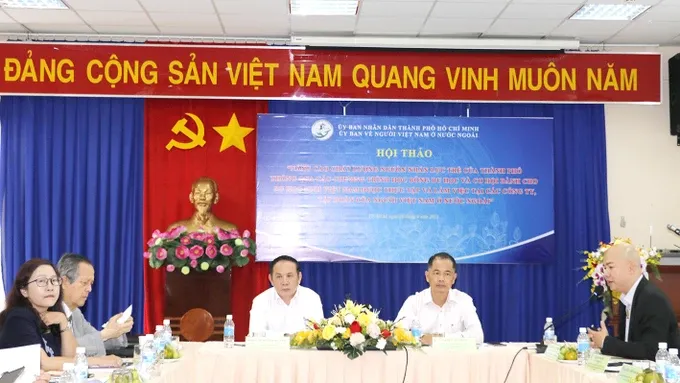
The connection between overseas and domestic intellectuals is creating flexible working and cooperation mechanisms that mobilize experts participating in the process of nation-building and development.
Overseas Vietnamese advocated and expressed their joyfulness with information about the country's new policies, especially the spirit of Resolution 45-NQ/TW mentioned above.
According to Vice President of the Business Association of Overseas Vietnamese (BAOOV) Danny Vo Thanh Dang, it is necessary to have specific policies and incentives for each group of overseas Vietnamese. Besides, the country should offer more open and flexible mechanisms for those individuals without certificates under the requirement of Vietnam to return homeland to strongly contribute to the country’s development.
The Vice President of BAOOV also made proposals of opening an independent research institute for overseas Vietnamese, connecting older overseas Vietnamese who have had relationships with domestic and foreign intellectuals to offer initiatives and solutions and solve specific problems for each different field.
Member of the Central Committee of the Vietnam Fatherland Front and Chairman of the Vietnam-Korea Businessmen and Investment Association (VKBIA) Tran Hai Linh emphasized the necessity to make changes in the strategy of attracting overseas Vietnamese intellectuals participating in the country’s development.
Especially, the country needs to concentrate on tackling bottlenecks in income, working environment, promotion and creativity opportunities for talented people, especially experts and intellectuals.
Capacity enhancement for Vietnamese human resources
As Integrated Circuit (IC) design and Artificial Intelligence (AI) are set to strongly develop in the coming time, Master Le Duy Can, a Vietnamese-German and lecturer from Vietnam – German University agreed with the development of Vietnam in the two fields.
Master Can analyzed that Vietnamese abroad are likely to learn and grasp extensive knowledge and international experiences in the two fields as they have been working in developed countries, thereby contributing to enhancing the quality and capacity of the country's human resources in the fields of IC design and AI.
Besides, overseas Vietnamese also bring new initiatives and new ways of approaching which shall help to promote innovation and creativity in accordance with the actual demand. They could help widen the international cooperation network, create favorable conditions for cooperation in fields of studying and development, involving in domestic human resources training to promote the professional competence of Vietnamese human resources.
Mr. Tran Hai Linh shared the experience from the Republic of Korea on taking advantage of the intelligence of Korean intellectual teams who were properly trained in developed countries and came back home to strongly contribute to the country’s development.
On the other hand, the reform policies on education and training, vocational training together with programs of advanced human resources development and intellectual attraction, experts in fields of science, technology and industry have played an important role in the economy's development.
Therefore, the establishment of the Vietnam - Korea Experts and Intellectuals Association (VKEIA) under the Vietnam – Korea Businessmen & Investment Association (VKBIA) is aimed at gathering Vietnamese and Korean intellects and experts working in various fields, comprising business management, finance, science and technology, ICT, AI, mechanical engineering, green energy, green industry and so on.
The activities of connecting the intellectuals of Vietnam and the Republic of Korea have clearly shown the potential of in-depth and effective cooperation on green investment and science–technology applications for green industry and green economic development in Vietnam in the upcoming time.
Master Le Duy Can, a German expatriate and lecturer at Vietnamese - German University showed his opinion that attracting high-quality human resources from abroad is really an important part of Vietnam's development strategy.
With the professional knowledge, skills and experiences, they will bring new outlooks, professional working styles and international relationship networks, contributing to improving the quality of education, research and development, as well as innovation and creativity in various fields.
